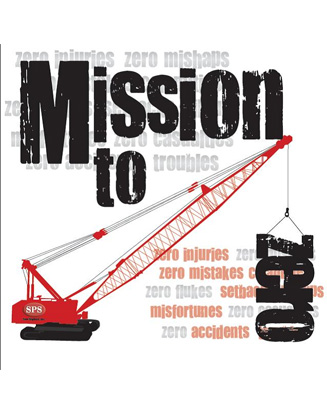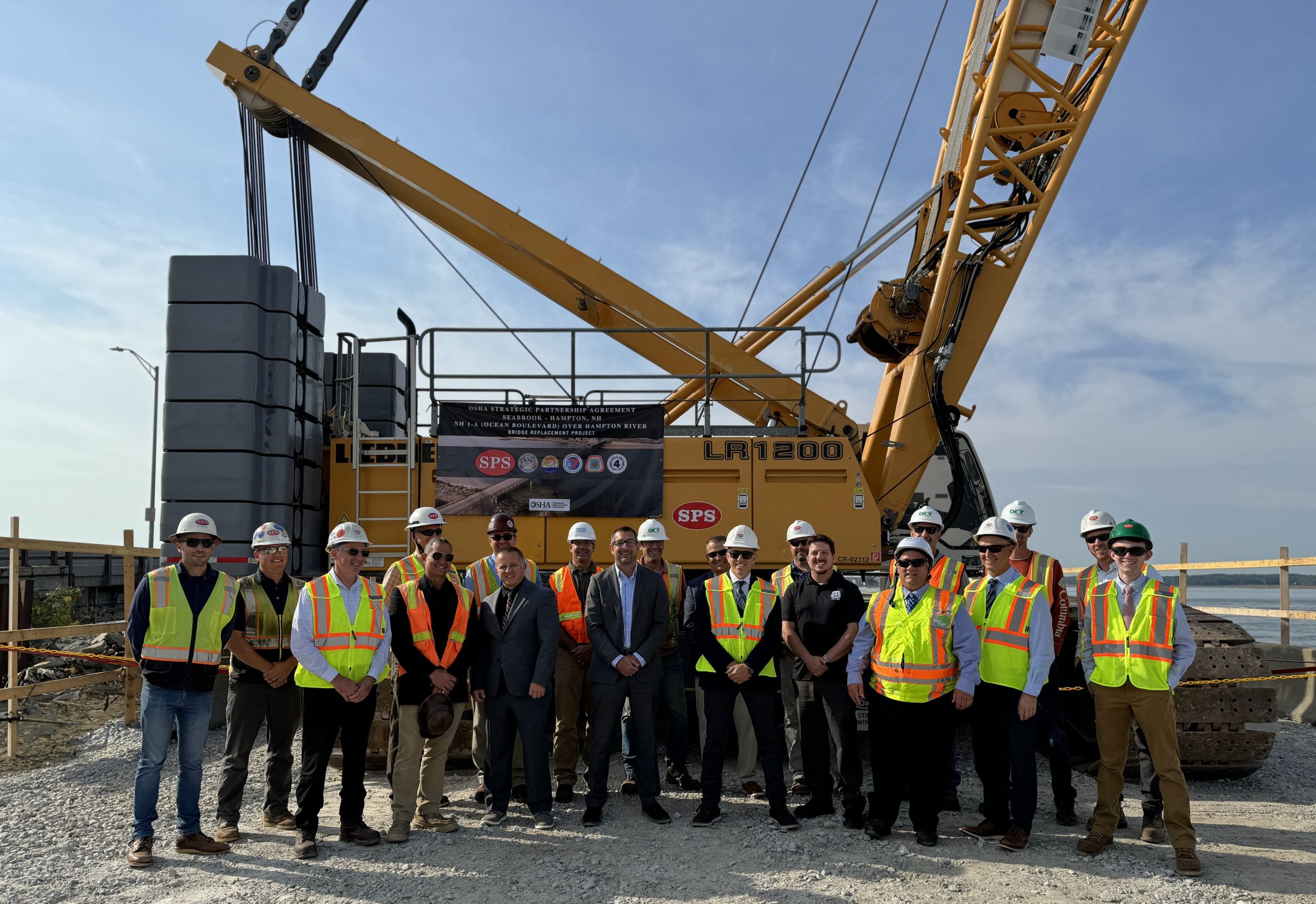As part of SPS New England’s deep commitment to safety, the firm continues to maintain the “Mission to Zero” Safety initiative. Initially launched in 2011, the program includes several components that consistently reinforce the SPS culture of safety. Every member of the SPS Team, from the office to every field/project location throughout New England, is encouraged to be aware of how their actions can contribute to a safe working environment.
Continue reading “SPS Maintains Commitment to Safety through “Mission to Zero” Initiative”
Category: Safety
Recovery Month
Recovery Month is a national observance held every September to educate Americans that substance use treatment and mental health services can enable those with a mental and/or substance use disorder to live a healthy and rewarding life.
SPS believes that behavioral health is essential to overall health, prevention works, treatment is effective, and people can and do recover. Recovery Month is a time to celebrate the gains made by those in recovery. Treatment can save a life and can help people struggling with Substance Use Disorders (SUDs).
Did you know that the Laborers Union provides access to various resources to help union members with substance abuse issues, if needed? Contact Marc Lyle, Laborer Recovery Specialist for more information. https://local22.com/benefits/
In crisis? Call or text 988 for help today.
Learn more about Recovery Month here: https://www.naadac.org/national-recovery-month
Safe and Sound Week: Mental Health
OSHA’s Safe and Sound Week is held every year at the beginning of August. The goal of Safe and Sounds Week is to recognize the successes of workplace health and safety programs as well as an opportunity for companies to evaluate their programs and make improvements. The focus for 2023 Safe and Sound Week is mental health and well-being.
Many discussion topics in construction focus on physical safety, protecting ourselves and others from bodily harm. What is not often talked about is our mental health. Stress, anxiety, and depression are common in the industry and result in construction having one of the highest rates of suicide and substance abuse. It is important that we talk about these issues to reduce the stigma and encourage all to reach out when help is needed.
Protect Your Hearing Month
Did you know?
- Exposure to loud noise or certain chemicals while at work can damage your hearing? Occupational hearing loss is one of the most common work-related illnesses and is permanent.
- 22 million US workers are exposed to hazardous noise levels at work each year.
- Reducing workplace noise below 85 dBA is the best way to prevent occupational hearing loss and other effects from hazardous noise.
Learn more about how to protect your hearing on the job site here: https://www.cdc.gov/niosh/topics/noise/
November 2024 Safety Focus: Cranes and Hoisting
This month’s SPS Safety Focus is all about Cranes & Hoisting. Always take precautions when working around cranes.
Working with and around suspended loads requires a full understanding of the hazards they present.
Employees should always take precautions before moving a suspended load. Following these six steps helps to prevent potentially fatal accidents.
October 2024 Safety Focus: Fire Prevention
This month’s SPS Safety Focus is all about Fire Prevention. Have you inspected your fire extinguishers lately? Are they fully charged, strategically located, accessible and ready for use? Or, are they laden with dust, obscurely hidden in some corner, affording a false sense of security?
The following is a brief resume of the classification of fires, and the recommended extinguisher to be used on each…
Fire at a construction site can endanger the lives of workers and others who happen to be on the site. A fire during construction can also result in severe structural damage, and destruction of machinery, equipment, or materials, and untimely delay in project completion.
The fire tetrahedron consists of four elements that must be present for the occurrence of fire. The four elements are oxygen, heat, fuel, and a chemical chain reaction. If you remove any of the essential elements, the fire will be extinguished.
SPS NH1A Over Hampton River Bridge Replacement Project Signs OSHA Partnership Agreement
Thank you to Laborers Local 976, Piledrivers and Divers Local 56, Iron Workers Local 7, Carpenters Local 349, and Operating Engineers Local 4 for their participation and attendance yesterday morning signing a partnership agreement with OSHA. The partnership agreement signifies this group’s commitment to a safe and healthful jobsite at the NH1A Over Hampton River Bridge Replacement Project.
We look forward to a safe and successful project!
Recovery Month 2024
It’s OK to ask for help. September is Recovery Month and a good time to make sure you have the support you need to recover. Explore your support options at samhsa.gov/find-support/health-care-or-support.
Feeling connected to others can help anyone on their path to recovery. This Recovery Month, check out inspiring stories of hope and recovery: 988lifeline.org/stories/
Relationships and social networks lead to friendship, love, hope, and support. Recovery can be a more manageable journey with the support of others. samhsa.gov/find-support
September 2024 Safety Focus: Hand & Power Tools
his month’s SPS Safety Focus is all about Hand and Power Tools. Employees who use hand and power tools have the potential to be exposed to various hazards including falling, flying, abrasive, and splashing objects, or to harmful dusts, fumes, mists, vapors, or gases.

Five basic safety rules can help prevent hazards associated with the use of hand and power tools…

Hazards of hand and power tool use can include the following, and more. Using engineering and administrative controls, as well as appropriate personal protective equipment we can take steps towards eliminating or controlling tool-related hazards.

August 2024 Safety Focus: Confined Space
This month’s SPS Safety Focus is all about Confined Space. Workers in confined spaces can be at risk for injury or death from lack of oxygen, buildup of explosive or toxic gases, uncontrolled water, falling materials, and electrical hazards.

Treat all confined spaces as hazardous. Never enter a confined space:
- Without proper training, which your employer is required to provide.
- Before the air is tested for oxygen, flammable vapors, and toxic chemicals.
- Before the structure has been checked to make sure it will not collapse.
- Without a dependable way of communicating with a person outside of the space.
- Without appropriate personal protective equipment provided by your employer, such as a self-contained breathing apparatus.

Confined Space Safety Tip: Do not re-enter the same confined space before checking for hazardous conditions.

Reminder – Confined spaces present unique conditions that can become life-threatening!




















